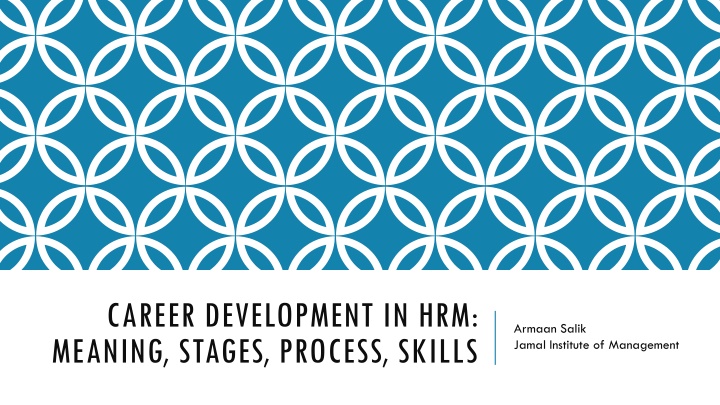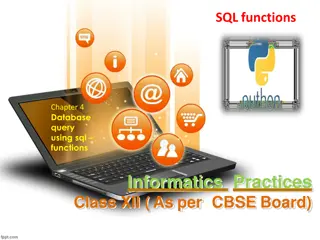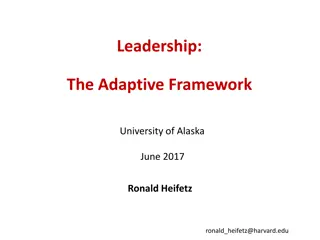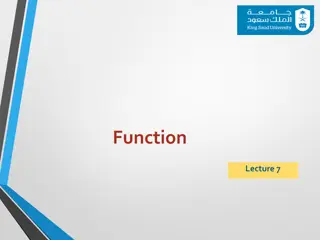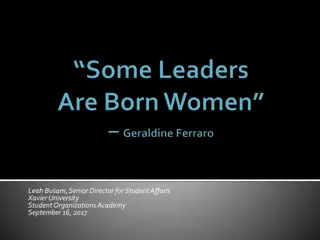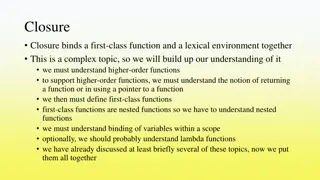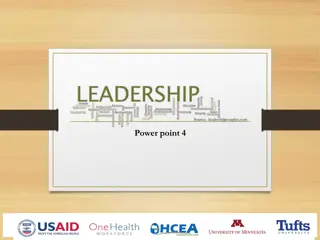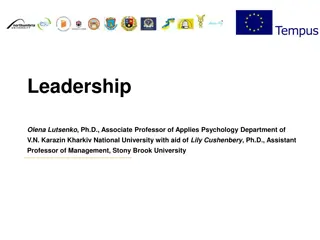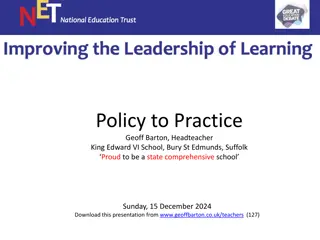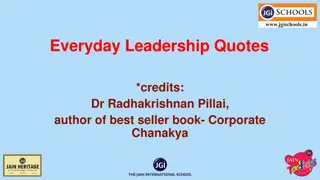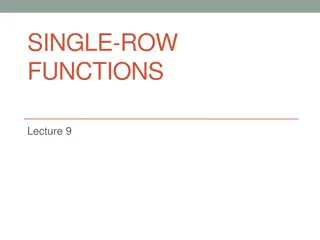Leadership Functions and Perspectives in Education
Delve into the essential functions of leaders and explore scholarly perspectives on leadership dynamics. Uncover debates on the distinctions between leaders and managers, and gain insights into the ideas of Taylor, Barnard, and qualities of effective leadership.
Download Presentation

Please find below an Image/Link to download the presentation.
The content on the website is provided AS IS for your information and personal use only. It may not be sold, licensed, or shared on other websites without obtaining consent from the author.If you encounter any issues during the download, it is possible that the publisher has removed the file from their server.
You are allowed to download the files provided on this website for personal or commercial use, subject to the condition that they are used lawfully. All files are the property of their respective owners.
The content on the website is provided AS IS for your information and personal use only. It may not be sold, licensed, or shared on other websites without obtaining consent from the author.
E N D
Presentation Transcript
CAREER DEVELOPMENT IN HRM: MEANING, STAGES, PROCESS, SKILLS Armaan Salik Jamal Institute of Management
OVERVIEW OF HRMS RISING IMPORTANCE HR s role goes beyond hiring: shaping culture, supporting employees, driving career growth. Growing demand for skilled HR professionals. Projected job growth in HR by 8% by 2031 (U.S. Bureau of Labor Statistics). HR Manager salaries in India: 2.9 lakh to 19 lakh/year
WHAT IS CAREER DEVELOPMENT IN HRM? Definition: Career development is the process of helping employees grow in their jobs and achieve career goals. Provides tools, training, and opportunities for skill development. Aligns employee growth with company goals for mutual benefit.
REAL-WORLD EXAMPLE Example: Junior Software Developer s Career Development Journey Training in leadership and communication. Mentorship from a management-level employee. Opportunities to manage small projects. Outcome: Employee develops skills, company gains future leaders.
WHY IS CAREER DEVELOPMENT IMPORTANT? Key Benefits: Makes employees feel valued and engaged. Helps employees learn new skills and stay prepared. Aligns personal goals with company objectives. Fosters a culture of constant learning. Improves work performance. Attracts top talent and improves company reputation. Builds future leadership for the company.
THE ROLE OF HRM IN EMPLOYEE CAREER DEVELOPMENT Key HRM Roles:Finding Hidden Talent: Skills assessments, 360-degree feedback, and data analysis. Helping Employees Learn: Workshops, certifications, peer learning, and conferences. Planning Career Growth: Career maps, mentorship, small goal-setting, and aligning growth with company success.
STAGES OF CAREER DEVELOPMENT IN HRM Assessment of Current Skills Identifying strengths and areas for improvement. Setting Career Goals Aligning personal goals with company objectives. Learning and Development Offering training, workshops, and mentorship. Tracking Progress Continuous feedback and goal review. Promotion and Succession Planning Identifying high-potential employees for leadership roles.
HRM SKILLS FOR CAREER DEVELOPMENT Key Skills Needed by HR Professionals: Communication Skills: To guide employees and provide feedback. Data Analysis: To spot potential talent and growth areas. Coaching and Mentorship: To develop leadership potential. Leadership and Strategy: To align career development with business goals. Adaptability: To adjust development plans as needed.
